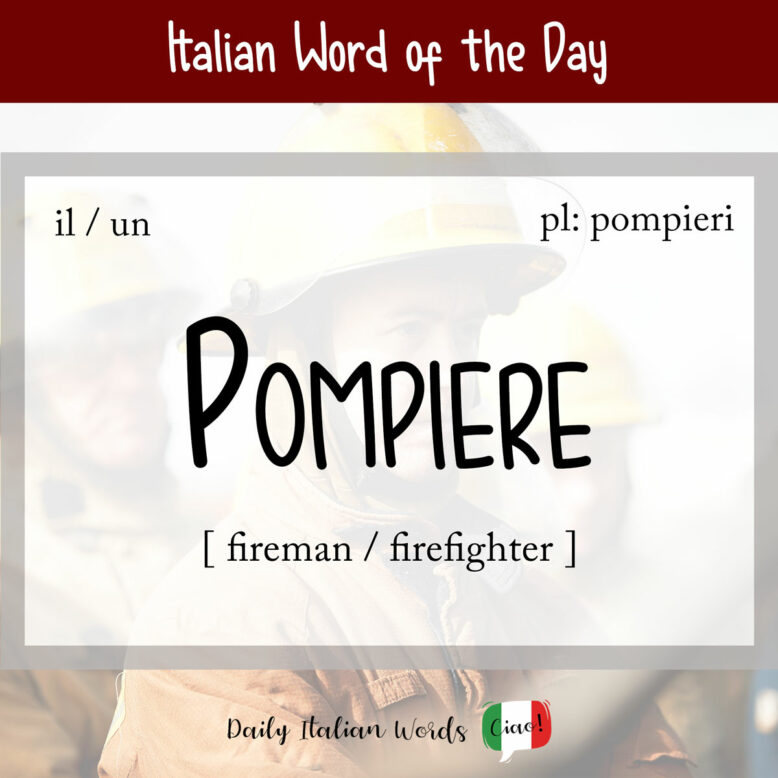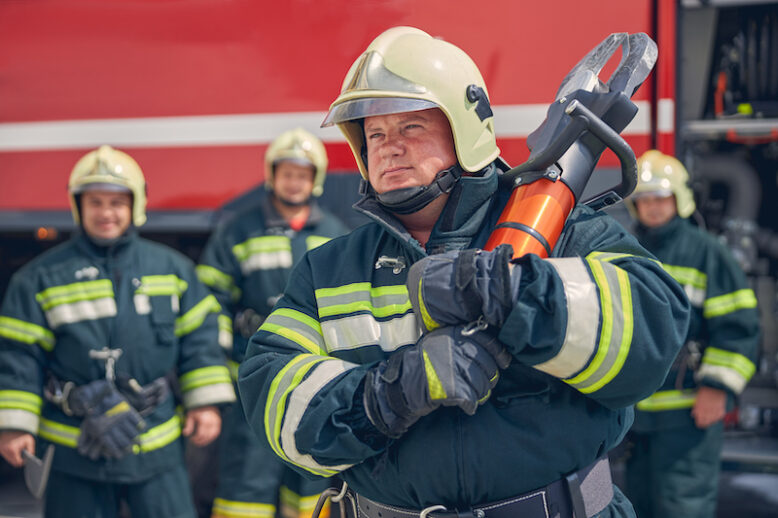Yesterday, my son was over the moon when a real-life firefighter came to our house to check the fire alarms. And today, he’s off to the fire station with his class to see the fire engines up close! Could life get any more exciting for a young boy? In Italian, the word for firefighter is pompiere.
pompiere
firefighter

The plural pompieri refers to firemen, or the fire brigade / department as a whole. Here are the definite and indefinite articles you need to use with this word:
- il pompiere = the fireman
- i pompieri = the firemen
- un pompiere = a fireman
- dei pompieri = some firemen
The word comes from the French pompier, which is a derivative of pompe meaning pompa (pump / hose).
It’s worth noting that while many Italian nouns ending in -iere change to -iera in their feminine form—such as portiere (caretaker) becoming portiera—it’s best to keep pompiere in its masculine form. This is because pompiere literally means “the one who holds the pump,” and changing it to the feminine could lead to some unintended and potentially awkward misinterpretations.
Firefighters are never called out to extinguish a small fiamma (flame), and sometimes even a fuoco (fire) can be handled at home using an estintore (fire extinguisher). However, once that fire becomes a full-blown incendio (large fire or blaze with destructive power), the firefighters must be called into action.
Here are some other words that are normally associated with firefighters:
- camion dei pompieri / autopompa = fire truck / fire engine
- caserma / stazione dei pompieri = fire station
- idrante = fire hydrant
- allarme antincendio = fire alarm
- esercitazione antincendio = fire drill
- antincendio = fireproof
- pompa = hose
- fumo = smoke
- spegnere = to extinguish / put out
Chiama i vigili del fuoco – la casa sta bruciando!
Call the fire department – the house is on fire!
The more formal term for a firefighter in Italian is il vigile del fuoco, which literally means “guardian of fire.” It’s a bit more of a mouthful than pompiere! When referring to the fire brigade or department as a whole, you would use the plural form: i vigili del fuoco. In this case, you could technically say la vigilessa del fuoco for a woman, but it isn’t used very much in everyday Italian and could also be interpreted as “the wife of the fireman.”

Heather Broster is a graduate with honours in linguistics from the University of Western Ontario. She is an aspiring polyglot, proficient in English and Italian, as well as Japanese, Welsh, and French to varying degrees of fluency. Originally from Toronto, Heather has resided in various countries, notably Italy for a period of six years. Her primary focus lies in the fields of language acquisition, education, and bilingual instruction.


